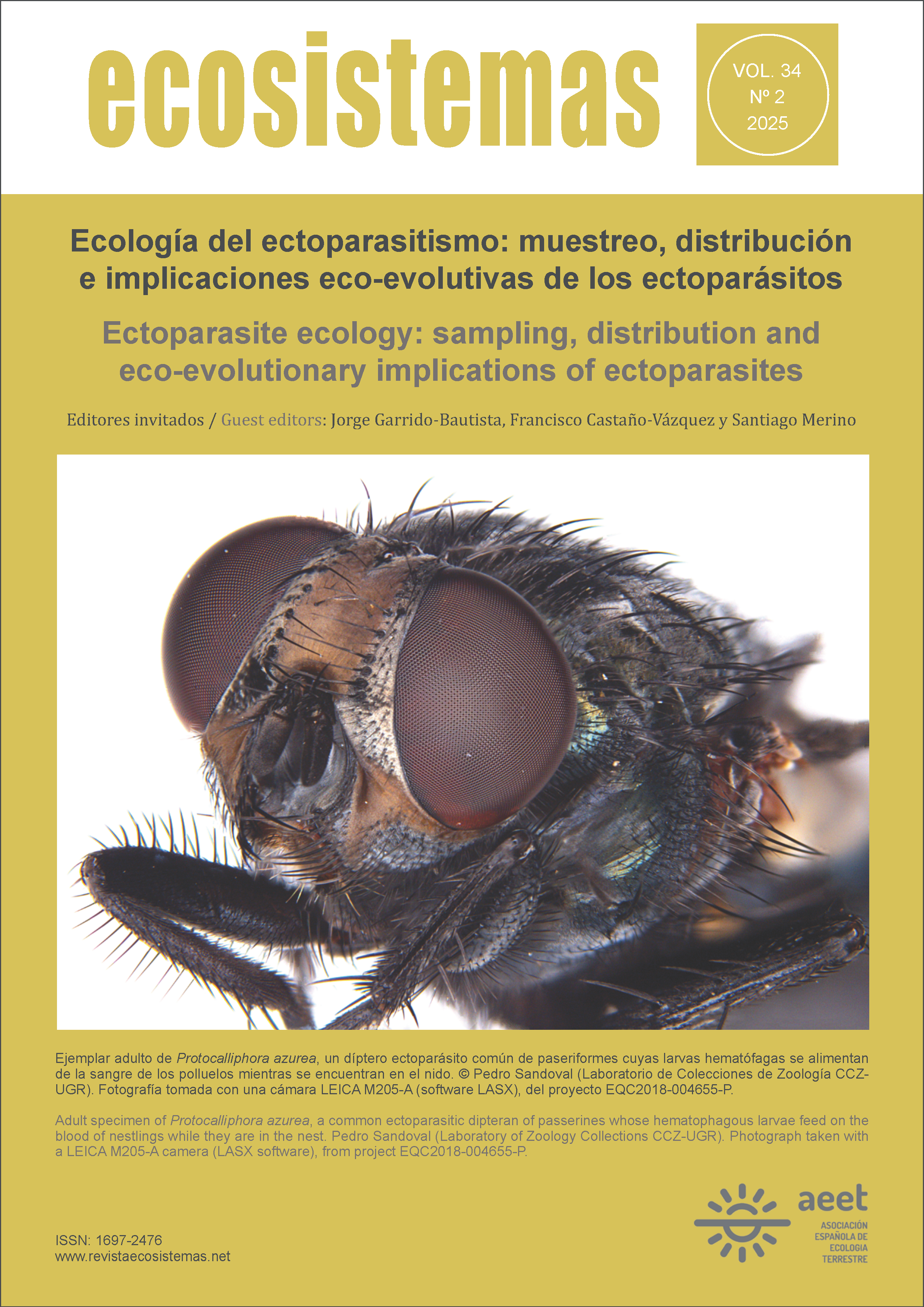Sampling, molecular tools, and experimentation for the study of bird feather mites and lice
Main Article Content
Abstract
Permanent ectosymbionts of birds have become an exceptional study system for addressing key questions in ecology and evolutionary biology. Among the different groups of avian ectosymbionts, feather mites and lice are the most extensively studied. Advances in experimental methodologies, molecular ecology, and genomics have greatly expanded our understanding of these organisms, establishing them as model systems for research on coevolutionary processes. However, there remains a notable lack of standardization in sampling protocols and molecular methodologies, along with knowledge and experience that, in some cases, remain unpublished and shared only informally among researchers. This situation limits comparability across studies and hinders experimental progress. In this work, we review the different sampling methods (collection and counting), the most appropriate molecular techniques, and the experimental approaches that have been used to date, aiming to consolidate existing knowledge and to facilitate and encourage future research into the biology, ecology, and evolution of these ectosymbionts.
Downloads
Article Details

This work is licensed under a Creative Commons Attribution-NonCommercial 4.0 International License.
Accepted 2025-06-13
Published 2025-07-23

